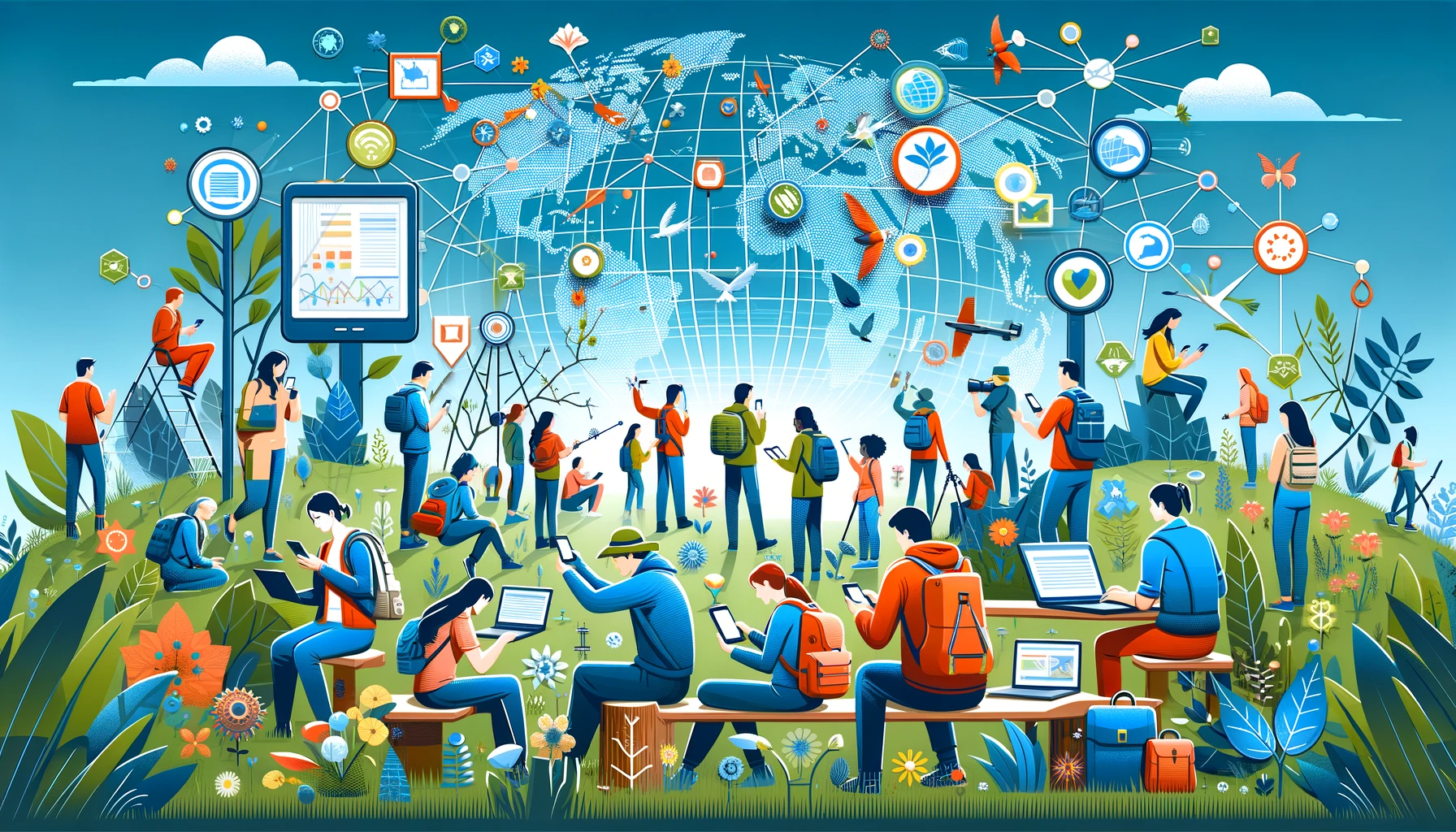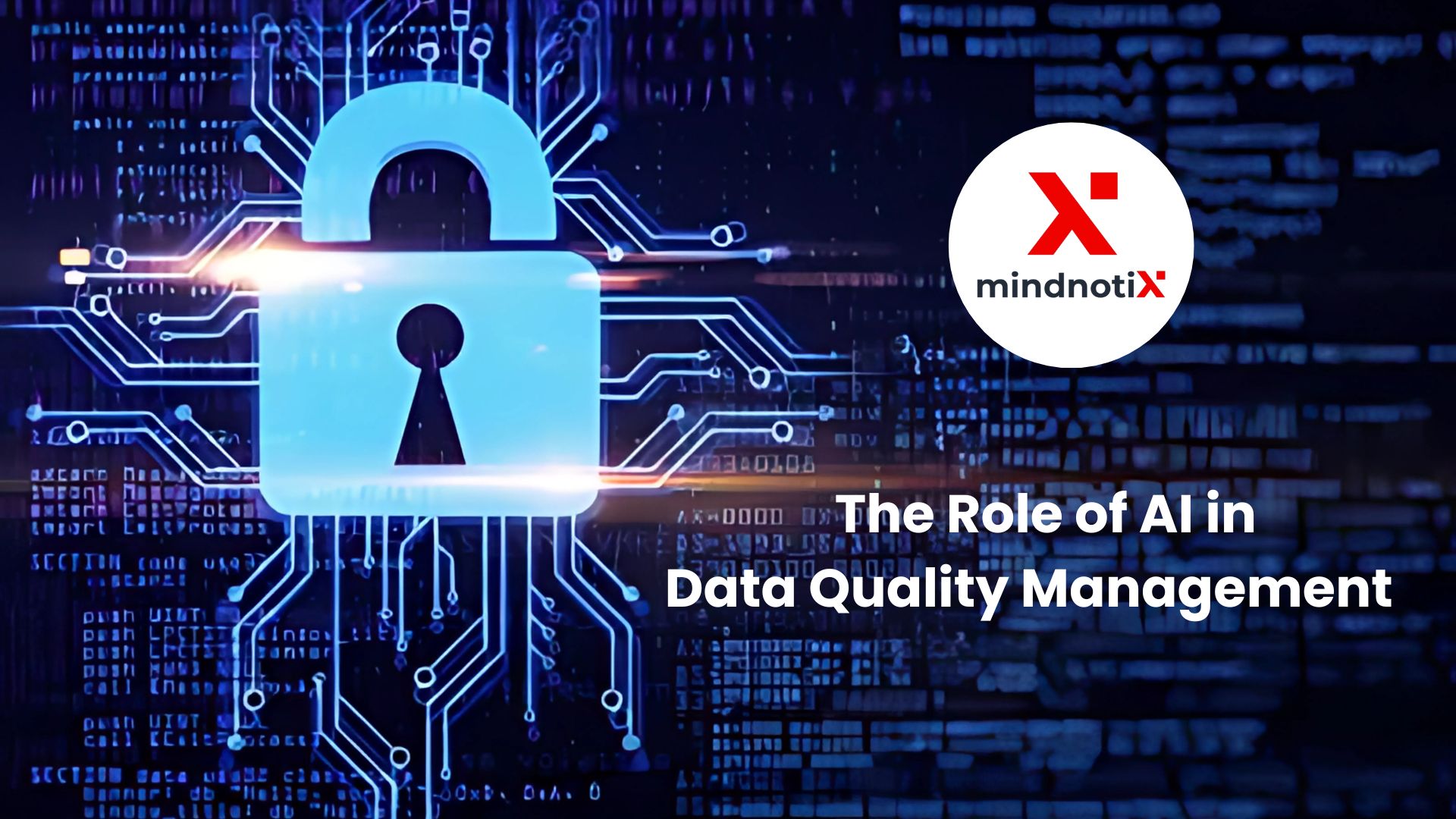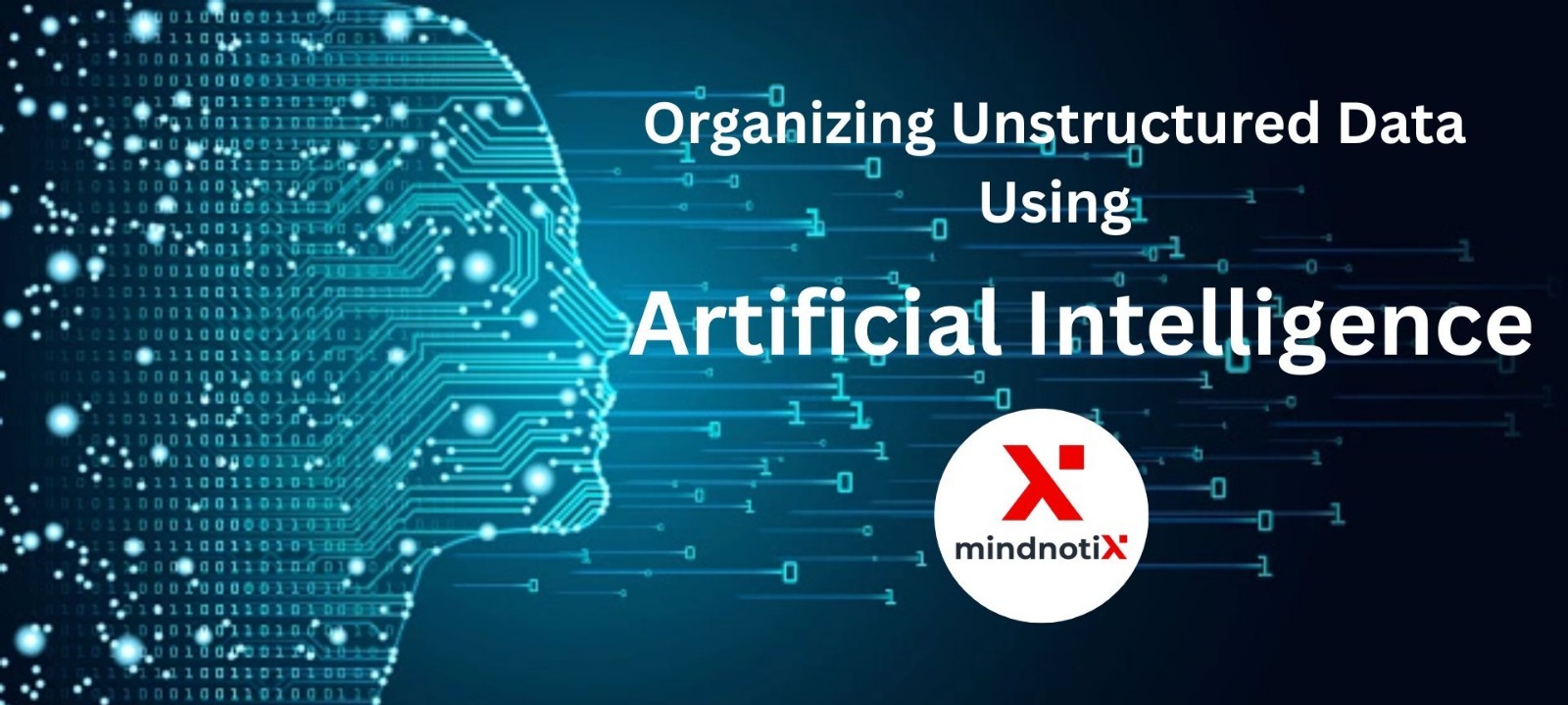Imagine a world where anyone, regardless of scientific background, can contribute to groundbreaking research. This isn't science fiction, but the reality of citizen science. Now, picture this: citizen science empowered by the cutting-edge capabilities of Artificial Intelligence (AI). This powerful combination is revolutionizing the way we approach scientific discovery, opening doors to a future brimming with exciting possibilities.
This blog delves into the exciting world of AI-powered citizen science. We'll explore how AI is transforming this collaborative approach to research, amplifying its potential for groundbreaking discoveries. We'll uncover the ways AI streamlines tasks, unveils hidden patterns, and guides research directions, all while enhancing the citizen science experience. Dive in and discover how you too can be a part of this scientific revolution!
The Rise of Citizen Science
Citizen science projects have existed for centuries, but the internet has revolutionized their reach and impact. Platforms like Galaxy Zoo and eBird allow volunteers to classify galaxies, identify bird species, and contribute to groundbreaking research. These projects not only generate valuable data but also foster public engagement with science.
The AI Advantage
AI can significantly enhance citizen science in several ways:
Automating Mundane Tasks: AI can handle tedious tasks like image classification or data filtering, freeing up scientists and volunteers to focus on more complex analysis and interpretation.
Identifying Patterns: AI algorithms can analyze vast datasets and identify hidden patterns or trends that humans might miss, leading to new discoveries.
Guiding Research: AI can suggest areas for further investigation based on the collected data, optimizing the research process.
Enhancing User Experience: AI can personalize the citizen science experience, tailoring tasks to volunteer skill levels and interests, leading to higher engagement and contribution.
Examples of AI in Action
Here are some examples of how AI is already transforming citizen science:
Detecting Diseases: AI algorithms are being used to analyze medical images collected through citizen science projects, aiding in the early detection of diseases like malaria and cancer.
Monitoring Wildlife: AI-powered camera traps can automatically identify animal species from captured images, aiding in conservation efforts.
Classifying Weather Patterns: Citizen scientists can contribute weather data using smartphones. AI can then analyze this data to improve weather forecasting models.
The Future of AI-powered Citizen Science
The future of citizen science is bright, fueled by the power of AI. As AI technology continues to evolve, we can expect even more innovative ways to engage the public in scientific research. Citizen science with AI has the potential to revolutionize how we approach research, leading to breakthroughs that benefit everyone.
Call to Action
Citizen science offers a unique opportunity for anyone to contribute to scientific progress. If you're interested in getting involved, there are numerous citizen science projects available online. You can also support the development of AI-powered citizen science tools by contributing to relevant research institutions or advocacy groups.
Citizen Science: Harnessing the Power of the Public
Citizen science brings the public into the scientific fold, allowing individuals to participate in data collection, analysis, and even project design. This approach offers several benefits:
Increased data collection: By engaging a wider audience, citizen science projects can gather vast amounts of data across broader geographical regions and longer timeframes.
Diversity of perspectives: Citizen scientists bring a unique perspective to research, potentially spotting patterns or trends that might be missed by professional researchers.
Public engagement: Citizen science fosters public interest in science and promotes scientific literacy within communities.
However, citizen science initiatives also face limitations:
Data quality and consistency: Data collected by citizen scientists may vary in quality and consistency, requiring rigorous validation and standardization processes.
Project design and management: Designing engaging and scientifically valuable citizen science projects requires expertise and careful planning.
Data analysis complexity: Similar to open science, analyzing large volumes of citizen-collected data poses a significant challenge for researchers.
AI: The Catalyst for Open and Citizen Science Collaboration
AI plays a crucial role in overcoming the challenges faced by open and citizen science, paving the way for a more inclusive and collaborative scientific environment:
Facilitating data sharing: AI can power secure and efficient platforms for sharing research data, metadata, and associated protocols. This allows researchers across disciplines and institutions to access and analyze relevant datasets for their investigations.
Enhancing collaboration: AI-powered platforms can connect researchers across geographical and disciplinary boundaries based on their areas of expertise. This fosters collaboration, facilitates communication, and allows for joint research projects.
Automated data analysis: AI can analyze large, complex datasets from open science and citizen science projects, identifying patterns, trends, and anomalies that might be missed by traditional methods. This not only accelerates discovery but also allows researchers to focus on interpretation and formulating new hypotheses.
Real-World Examples: AI Empowering Open and Citizen Science
Several initiatives illustrate the transformative power of AI in open and citizen science:
Large-scale Citizen Science for Astronomical Classification: This extensive citizen science project utilizes AI to categorize objects in astronomical images. AI initially assists with preliminary classifications, then learns from citizen scientists' contributions to enhance its accuracy over time. This collaborative approach accelerates data analysis and allows researchers to explore vast astronomical datasets, leading to new discoveries about the universe.
Open-access Disease Research: During a recent major disease outbreak, researchers leveraged AI to analyze vast amounts of publicly available data on the disease, including genetic sequences, how the disease spreads, and potential treatments. This enabled them to identify potential targets for new drugs and treatment strategies significantly faster than traditional methods, potentially saving lives.
Environmental Monitoring with AI-powered Data Analysis: AI is used to analyze data collected by various open-source initiatives, including satellite imagery and sensor readings. This empowers scientists to monitor changes in the environment, such as deforestation rates, and refine models that predict climate change, paving the way for more effective environmental policies.
Ethical Considerations and Challenges: Navigating the Future
While AI presents immense opportunities, its integration into open and citizen science raises ethical considerations:
Data privacy: Open science encourages data sharing, but this must be done with robust safeguards in place to protect personal information and sensitive data.
Algorithmic bias: AI models are trained on data, and any biases present in that data can be perpetuated by the AI itself. This could lead to skewed results or the exclusion of certain perspectives in open science and citizen science projects. Addressing this requires:Ensuring diverse and representative training data: Training AI models on datasets that encompass diverse research areas, methodologies, and populations is crucial to mitigate bias.Promoting transparency and explainability: Researchers should be able to understand the rationale behind AI-generated insights from open and citizen science data. Explainable AI techniques can be employed to provide insights into how AI arrives at its conclusions, allowing researchers to evaluate potential biases and make informed decisions.
Citizen science participation: The design of citizen science projects needs to be inclusive and ensure equitable participation from diverse populations. Additionally, citizen scientists should be adequately informed about the purpose of the project, how their data will be used, and any potential risks associated with their participation.
Attribution and ownership: Open science and citizen science blur the lines of traditional authorship. Mechanisms need to be developed to fairly recognize the contributions of researchers, citizen scientists, and AI to scientific discoveries.
A Brighter Future for Scientific Discovery
The convergence of open science, citizen science, and AI presents a groundbreaking opportunity for scientific progress. By fostering collaboration, democratizing access to knowledge, and accelerating data analysis, this powerful trio can revolutionize the pace and nature of scientific discovery. Addressing the ethical considerations outlined above will ensure that this future is inclusive, responsible, and ultimately beneficial for all.
The future of scientific discovery is undoubtedly collaborative. AI-powered citizen science paints a vibrant picture where the public and researchers join forces, armed with cutting-edge technology. This powerful union promises to accelerate research, unlock new avenues of exploration, and ultimately benefit all of humanity.
Read more :
1.AI POWERED FRAUD DETECTION AND LOSS PREVENTION
2.Demand Forecasting with AI: Avoiding Stockouts and Overstocking
3.Predictive Maintenance for Retail Equipment: Using AI to Prevent Downtime
4.Optimizing Delivery Routes and Logistics with AI
5.Augmented Reality (AR) and Virtual Reality (VR) Shopping Experiences powered by AI
6.AI-driven Visual Search and Recognition for In-Store Shopping
7.Biometric Authentication and Frictionless Checkout with AI
8. AI for Social Justice: Combating Discrimination and Promoting Equality
For more information contact : support@mindnotix.com
Mindnotix Software Development Company


 AI-Taxi App
AI-Taxi App AI-Food App
AI-Food App AI-Property Mgmt App
AI-Property Mgmt App AI-CRM
AI-CRM AI-Fantasy App
AI-Fantasy App
 Web Development
Web Development App Development
App Development Business & Startup
Business & Startup Hire Developer
Hire Developer
 Digital Marketing
Digital Marketing Lead-generation
Lead-generation Creative Agency
Creative Agency Branding Agency
Branding Agency Augmented Reality
Augmented Reality Virtual Reality
Virtual Reality Internet of Things
Internet of Things Artificial Intelligence
Artificial Intelligence Blockchain
Blockchain Chatbot
Chatbot




